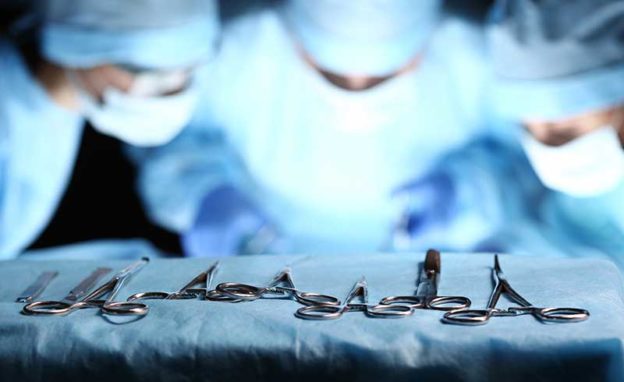In 2015, 2 million people in the United States had a substance use disorder related to prescription drugs. Many of these individuals first tried opioids when they were legally prescribed in a medical setting. Now, the attention of public health officials has turned to prescribing practices within the medical arena. People have begun to wonder: could surgery cause new persistent opioid use, even among people who have never used opioids before? If so, we may need to rethink how we administer opioids following major or minor surgery.
Persistent Opioid Use Following Surgery
Aware of the ongoing opioid epidemic, researchers at the University of Michigan Medical School were interested in finding out how prescribing opioids after surgery affected a person’s likelihood of developing a problem with opioid use. To answer this question, they looked at a national insurance claims dataset to identify more than 36,000 adults who had undergone either minor surgery (e.g., varicose vein removal, carpal tunnel surgery, laparoscopic appendectomy) or major surgery (e.g., bariatric surgery, hysterectomy, hernia repair). All of the patients were non-opioid users. Therefore, they had not filled an opioid prescription in the year prior to their elective surgery.
The researchers found that 5.9% of patients who underwent minor surgery and 6.5% who underwent major surgery fulfilled another opioid prescription within 90 to 180 days following surgery. This means that more than 1 in 20 people who undergo surgery will develop new, persistent opioid use. Among a comparison group of patients who received non-operative treatments, only 0.4% developed new persistent opioid use.
The researchers also looked for risk factors that make it more likely that a person will develop persistent opioid use. As a result, they found that tobacco use, alcohol and substance use disorders, anxiety, mood disorders, arthritis, and preoperative pain disorders make it more likely that a person will persistently use opioids after a surgery. This fits with other research showing that people with these health conditions are more likely to develop opioid abuse.
For over 25 years, people from all over the world have chosen Waismann Method as their opioid detox provider.
We know the challenges you face and the importance of creating a unique and personal experience for you right from the start.Call for Detox Options 1-800-423-2482
Implications of the Research
The findings from the study, which was published in the Journal of the American Medical Association, shed light on the factors that are fueling our opioid epidemic. Surprisingly, there was no difference in persistent opioid use following minor versus major surgery. This contradicts the common assumption that people undergoing major surgery will be more at risk for opioid abuse, because they need to take more opioids to control their pain. In fact, the researchers analyzed a subset of patients who had undergone knee or hip replacement. They found that new persistent opioid use was unrelated to the amount of pain a person felt six months after surgery. These findings suggest that pre-existing patient factors, such as prior substance abuse, mood and anxiety problems, and sources of chronic pain are the likely pathway to persistent opioid use.
In addition, these findings may help to guide prescribing practices in clinical practice. When prescribing opioids to a patient who has not taken prescription painkillers before, physicians need to be aware of patient factors that place a person at increased risk of opioid abuse. For example, people with mood or anxiety disorders are much more likely to develop persistent opioid use following elective surgery. By providing treatment for their underlying mental health issues, these individuals may be less likely to turn to opioids in an attempt to numb their psychological pain. Similarly, providing non-pharmaceutical pain control options to people with pre-existing chronic pain may help them navigate their surgery without becoming persistent opioid users.
Elective Surgery-Related Persistent Opioid Use In Clinical Practice
We see the ramifications of prescribing opioids to opioid naive patients every day at the Waismann Method Center. For example, many of the patients who undergo our rapid detox program first started using opioids after a surgery. Although they now have difficulty controlling their opioid use, most of our patients are not “addicts”. We need to understand the difference between addiction and drug dependence. Only then, can we understand the opioid abuse problem in the United States.
Someone with an opioid addiction craves opioids and engages in compulsive drug-seeking behaviors. In contrast, opioid dependence is a physiological phenomenon in which the body becomes used to taking opioids. Those with opioid dependence may continue to take the drugs to avoid terrible withdrawal symptoms. However, they do not have the behavioral features of drug addiction.
Not everyone who uses opioids is an “addict”. Labeling them with that term only perpetuates the stigma associated with opioid use. Furthermore, this presents an enormous barrier to patients who are trying to get help for their opioid use problem. We can begin to address the opioid epidemic by taking an honest look at our prescribing practices and other factors that cause opioid naive individuals to try the drugs.
Sources
Opioid Addiction 2016 Facts & Figures, American Society of Addiction Medicine.
New Persistent Opioid Use After Minor and Major Surgical Procedures in US Adults, JAMA Network.






